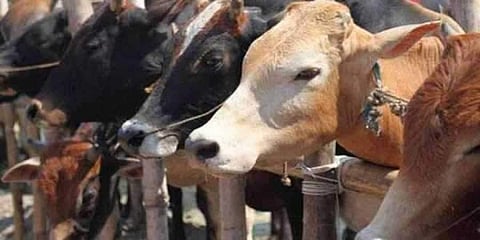

In the last few days there has been an interesting addition to the plethora of promises by various political parties leading up to the general elections in India. The Indian National Congress (INC) released its manifesto which has brought back into the national conversation- jobs, education, health, civil liberties, air pollution and so on. Whether it will be implemented is a question for another time and based on the mandate of a billion plus population. We wish to shed light on an important but somewhat overlooked part of the manifesto concerning animal welfare. Amidst the discussion on economy, national security and so on is point 15 in the section on Environment, which states, “We will promote the welfare of animals and severely penalise cruelty to animals.”
This is a commendable step, as in the context of animal rights and welfare, one can safely argue that India has poor institutions and weak legislations. For instance, the Prevention of Cruelty Animals Act, 1960 has not been amended in the 59 years since its enactment to at least enhance outdated and paltry punishments for cruelty to the voiceless. On the other hand, the police are largely unbothered and ignorant of the laws that do exist except when it comes to animals that invite controversy or monetary value.
Additionally, in the manifesto, under ‘Climate Resilience and Disaster Management’, one pledge states “We will not limit disaster management to humans and will include it to cover the impact of disasters on wild animals, domestic animals, pets, livestock, agricultural crops and plantations.”
Notably, as per data released last year, between 1953 and 2017, an average of 92,763 animals were killed due to floods every year. The human cost is high as well. Having said that, a state is said to have failed if it is not able to protect all living beings when survival is threatened by natural and man-made disasters.
In 2014, the Bharatiya Janata Party (BJP) and INC manifestos were praised for including – if not emphasising – environmental issues at the national level. However, the presence of animals in the former was limited to animal husbandry and wildlife tourism — in other words, animals were seen as economic entities. On the other hand, the BJP’s manifesto was assertive about the cultural importance of cows, and their commitment to protecting “cow and its progeny”, as was the INC manifesto released for the Madhya Pradesh Assembly elections in November 2018.
Among other national parties who have released their respective manifestos thus far in 2019 for the General Elections, such as the All India Trinamool Congress, Communist Party of India, Communist Party of India (Marxist), and the Nationalist Congress Party, the discussion around animals pertains to addressing the phenomenon of cow lynchings and improvements in livestock to make animal husbandry more productive.
The presence of animals in politics in India has been and continues to be restricted to the cow and its progeny, and in a few rare instances, wildlife conservation. The assertion in the INC manifesto extends welfare to all animals and in doing so, marks a milestone in the discourse on animal rights that is witnessing a humble, yet ardent revarsal. Animal cruelty as a debated subject in politics has been appropriated by and subsumed under cow protection movements. Consequently, animal cruelty, irrespective of monetary value has always taken a backseat to what are rather considered more ‘pressing problems’ within the aforesaid framework. In other words, the inescapable conundrum of the Indian discourse on animals is that no matter who the intellectual, it is difficult to compartmentalise it from either religion or protecting the cow.
It is in such a space that we need to locate and evaluate the promises in the manifesto of the INC, as having the potential to be a big step for animal welfare based on ethics in India, one that is not limited to to cultural rights, economic rights and conservation. In one sense, these pledges can be perceived as an ideological throwback to Mahatma Gandhi, who is one of the only prominent quotable intellectuals from India on the rights of animals. For instance, in his autobiography he writes: “I hold that, the more helpless a creature, the more entitled it is to protection by man from the cruelty of man.”
India may still have a long road to the evolution of liberal animal ethics in politics. However, keeping the discussion alive in the backdrop of other pressing issues confronting the country is the first important step towards growth that is inclusive.
Saumya Varma has a master’s in history from the Jawaharlal Nehru University and is a legislative research consultant based in Delhi. She tweets @varma_saumya
Vignesh Karthik KR is a doctoral student at the King’s India Institute, King’s College London. He tweets @krvtweets
